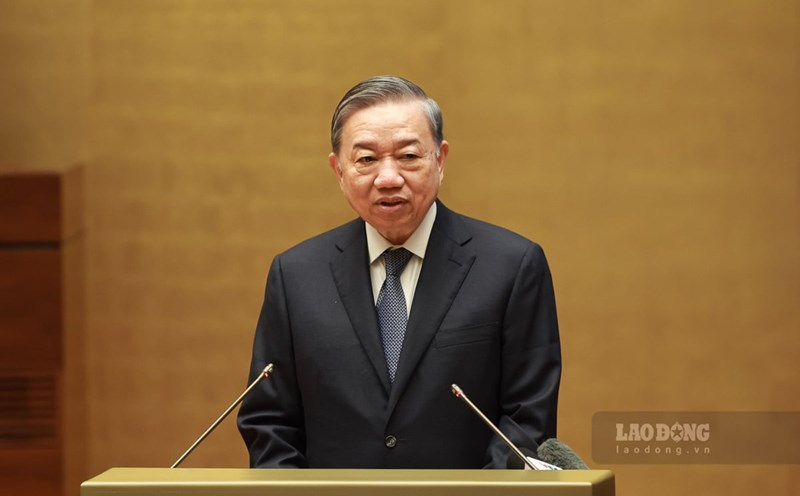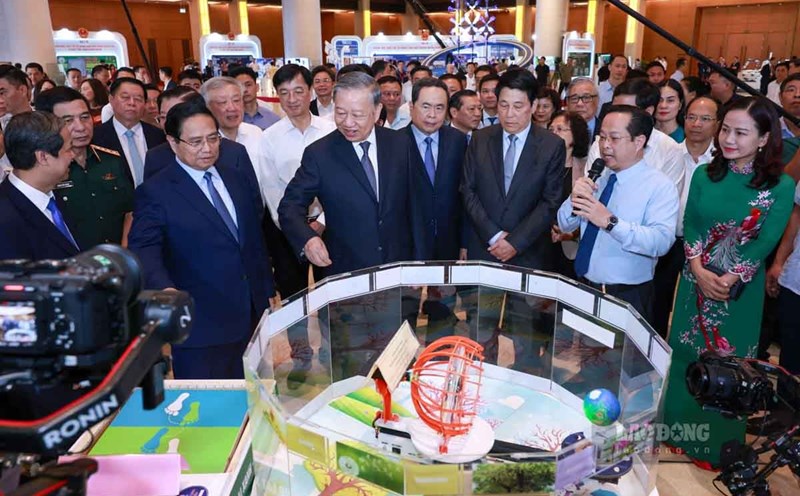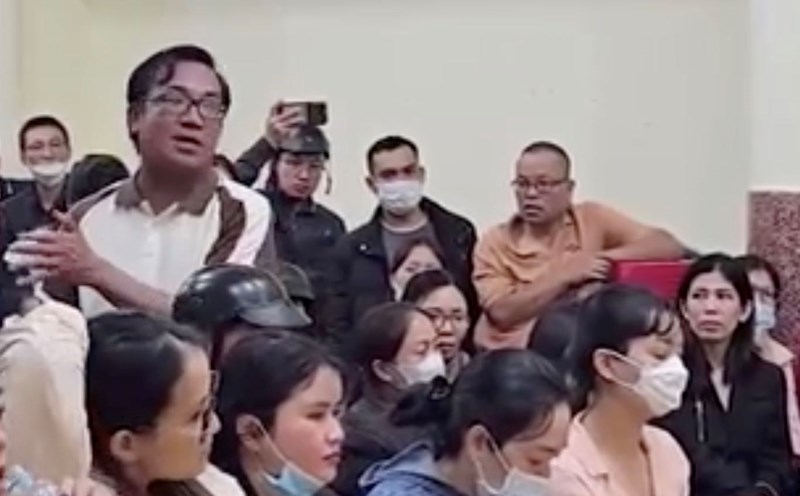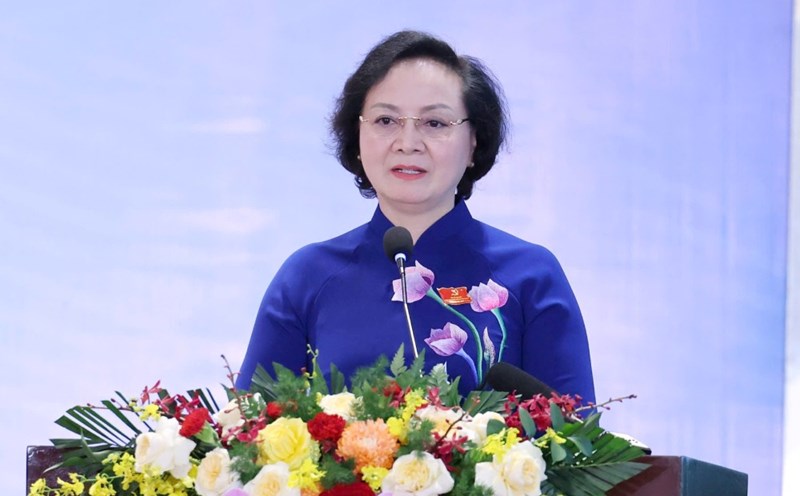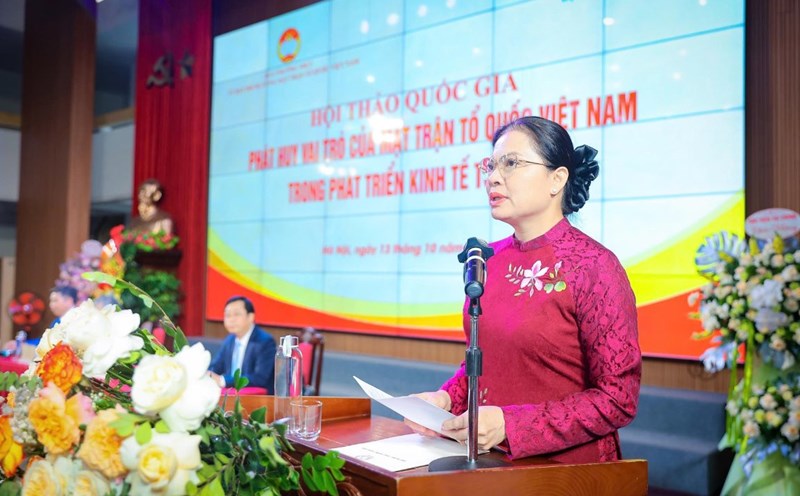Operating at the right pace, the national development machine will accelerate sustainably
In the country's development process, businesses and entrepreneurs have always been identified as a shock force, the main driving force for growth, innovation and integration. In particular, from the end of 2024 to now, the 13th Politburo has issued a series of strategic and systematic Resolutions, aiming to eliminate institutional bottlenecks, strengthen national internal strength and create a favorable environment for businesses:
Resolution No. 57-NQ/TW on breakthroughs in science, technology, innovation and national digital transformation; Resolution No. 59-NQ/TW on international integration in the new situation; Resolution No. 66-NQ/TW on innovating the work of law making and enforcement to meet the requirements of national development in the new era; Resolution No. 68-NQ/TW on private economic development; Resolution No. 70-NQ/TW on ensuring national energy security until 2030, with a vision to 2045; Resolution No. 71-NQ/TW on breakthroughs in education and training development; Resolution No. 72-NQ/TW on a number of breakthrough solutions, strengthening protection, care and improving people's health.
Speaking at the National Dissemination Conference on May 18, General Secretary To Lam affirmed that the 4 Resolutions (Resolution No. 57-NQ/TW; Resolution No. 59-NQ/TW; Resolution No. 68-NQ/TW; Resolution No. 66-NQ/TW) are "the four pillars" to help us take off. 4 major Resolutions of the Politburo have together created a unified body of thinking and strategic actions for the country's development in the new era. Although each Resolution focuses on an important field, they are closely linked, supplemented and promoted by each other in the process of dissemination and implementation.
All 4 Resolutions agree on the goal: Building a solid foundation for Vietnam to develop rapidly and sustainably and become a developed, high-income country by 2045. Resolution 66 requires the completion of a transparent and modern legal institution, ensuring human rights and civil rights. Resolution 57 identifies science, technology, innovation and digital transformation as new growth pillars. Resolution 59 expands development space through proactive and active international integration. Resolution 68 promotes the private economic sector to become a central driving force for the economy.
Nearly 4 months later, at the National Propaganda Conference of the Politburo's Resolutions on September 16, General Secretary To Lam continued to point out that the 3 Resolutions (Resolution No. 70-NQ/TW; Resolution No. 71-NQ/TW; Resolution No. 72-NQ/TW) are thematic Resolutions, continuing and strongly supplementing the strategic " Quadrangle of Resolutions", creating a unified body, a breakthrough to realize the two 100-year goals, building a strong, prosperous, lasting and sustainable Vietnam.
The General Secretary pointed out that the new driving force for the country's development is formed from the organic linkages between the Resolutions. International integration is the door to the world; Stable and green energy is a necessary condition for production, for schools and hospitals; High-quality education - training provides a team of systems engineers, doctors, and future public service administrators; Modern healthcare, solid prevention, good care helps people stay healthy to learn, work, and be creative. These pillars are simultaneously strengthened by smooth institutions, strict enforcement discipline, leading data and smart resource allocation. When each wheel is operated at the right pace, the national development machine will accelerate sustainably.
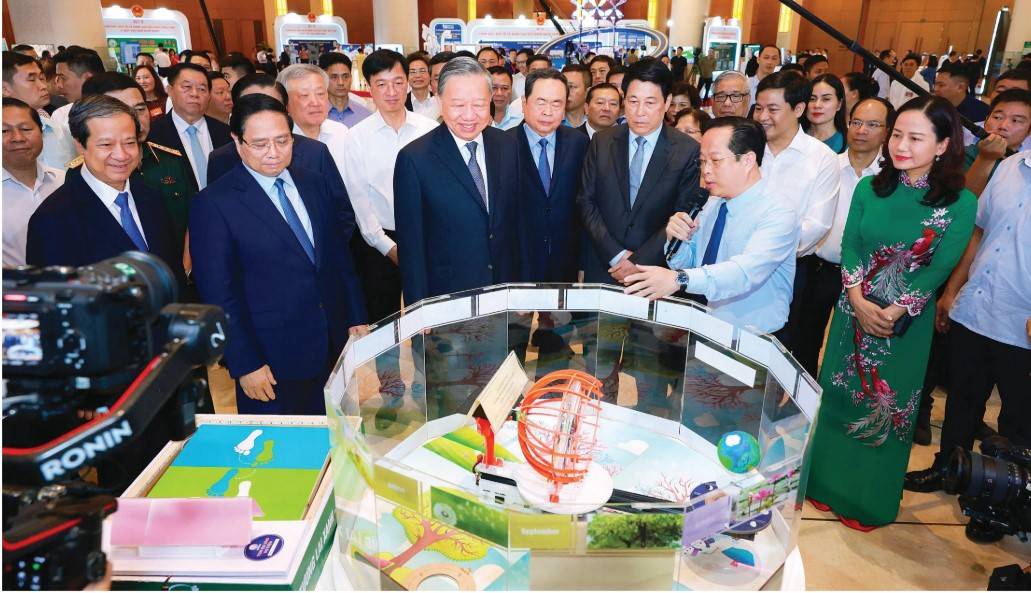
7 Resolutions to create a supporting circle
At the National Conference on disseminating these Resolutions of the Politburo, General Secretary To Lam also emphasized that the common breakthrough of all resolutions is the new development mindset: from "management" to "service", from "protection" to "creative competition", from "passive integration" to " proactive integration", from "dispersive reform" to "comprehensive, synchronous and profound breakthrough". This is a fundamental change in thinking, inheriting the achievements of innovation over the past 40 years and in line with the global trend in the digital age.
According to Associate Professor, Dr. Vu Trong Lam - Director, Editor-in-Chief of the Truth National Political Publishing House, the above strategic Resolutions all have very positive impacts on the business community and entrepreneurs. This needs to be placed in the overall context including: Institutions and laws; hard and soft infrastructure (energy, logistics, digital infrastructure); human resources and education; community health; international and market integration; finance, access to capital and innovation investment. The series of impacts can be seen that, from policy to practical actions when combined, the above 7 Resolutions create a supporting circulation: transparent institutions (Resolution 66) as a legal foundation for breakthroughs in science, technology development, innovation and national digital transformation (Resolution 57) and private economic development (Resolution 68); stable energy infrastructure (Resolution 70) and quality human resources (Resolution 71) creating conditions for businesses to expand production, improve labor productivity; strong healthcare (Resolution 72) to keep the manufacturing industry from disruption due to healthy labor force; international integration (Resolution 59) to open new markets Associate Professor, Dr. Vung Lam analyzed.
National Assembly delegate, Prof. Dr. Hoang Van Cuong - Member of the National Assembly's Economic and Financial Committee, Vice President of the Vietnam Economic Science Association - acknowledged that the above Resolutions of the Politburo have a close and close connection with each other and are a great impact and support for businesses and entrepreneurs to develop, contributing significantly to the country's socio-economic development and reaching international standards.
Enterprises and entrepreneurs received clear and strong messages about reducing compliance costs and administrative procedures; easy access to capital and resources; improving the energy and logistics environment; accessing appropriate human resources; expanding export markets with high standards; reducing risks due to epidemics.
All of these increase competitiveness, promote in-depth investment and increase the added value of Vietnamese products.
According to Prof. Dr. Hoang Van Cuong, trends such as green revolution, digital transformation, artificial intelligence, and automation are changing the production structure and global trade position.
In many new fields, the gap between developed and developing countries is considered to be on the starting line. Many countries have adjusted their strategies, seeking to participate more deeply in the global value chain to increase resilience and take advantage of new opportunities.
"If appropriate and timely actions are taken, Vietnam can participate in emerging and high-tech industries from the beginning, becoming an important link in the global supply chain, instead of stopping at processing and assembling" - Prof. Dr. Hoang Van Cuong affirmed.
Supporting businesses and breakthrough entrepreneurs
With 7 Resolutions issued in the past, each Resolution is an institutional "push" - from infrastructure, law, people to the international environment and internal resources - but if we look at it in a general way, they connect, support each other, creating a synchronous policy framework for businesses and entrepreneurs to break through.
Institutions and laws are clearly stated in Resolution 66. Resolution 66 sets the task of innovating the work of law making and enforcement, ensuring the law is a tool for creating development, protecting human rights, property rights and freedom of business. For businesses, this means minimizing policy risks, building confidence for long-term investment, and expanding production. Regarding breakthroughs in science, technology, innovation and national digital transformation (Resolution 57) not only calls for promoting digital transformation but also aims to develop national data infrastructure, ensure information security, promote research and development of high-tech products in the country. With the policy of supporting testing and prioritizing technology enterprises, there will be more technology startups and innovative enterprises to create products with international competitiveness.
Resolution 68 on private economic development has positioned the private economy as the most important driving force of the national economy. The Resolution requires the removal of administrative barriers, barriers to access to markets, land, capital, technology, data; ensuring a fair and transparent business environment and encouraging entrepreneurs to fulfill their social responsibilities. This is the core for the private sector to move forward, expand its scale and take on a leading role in many industries.
Strategic infrastructure and energy security are reflected in Resolution 70. Energy security is a decisive condition for stable production. Resolution 70 outlines tasks, perfecting institutions and policies to become competitive advantages, a solid foundation, a strong driving force to promote energy development; Developing energy supply and infrastructure, firmly ensuring energy security, meeting growth requirements.
Resolution 71 on breakthroughs in education and training development aims to make breakthroughs in education quality, closely connecting schools and businesses. Develop strong enough mechanisms and policies to encourage organizations and enterprises to invest in developing education and training; promote public-private cooperation; expand cooperation and linkage between higher education institutions, vocational education institutions, research institutions, organizations, and enterprises at home and abroad; prioritize credit capital for education and training development projects. For businesses, this means reducing the cost of retraining, increasing access to qualified workers; contributing to improving productivity and innovation capacity.
Resolution 72 emphasizes that protecting and caring for people's health is the foundation for socio-economic development. Enterprises benefit from a healthy workforce, reducing disease costs and production interruptions due to epidemics. An effective health system is also a factor that builds trust to attract high-quality human resources.
Resolution 59 affirms extensive and comprehensive integration, in which people and businesses are the center, the subject, the driving force, the main beneficiaries and beneficiaries of international integration. This is both an opportunity and a requirement to improve the competitiveness of businesses in the international arena. This is the key for businesses to participate in the regional and global value chain, expand markets, and develop strongly.
The messages stated in the 7 Resolutions of the Politburo have brought great confidence to the Vietnamese business community and entrepreneurs to continue to make great contributions to the country's socio-economic development as well as reaching regional and international levels.

